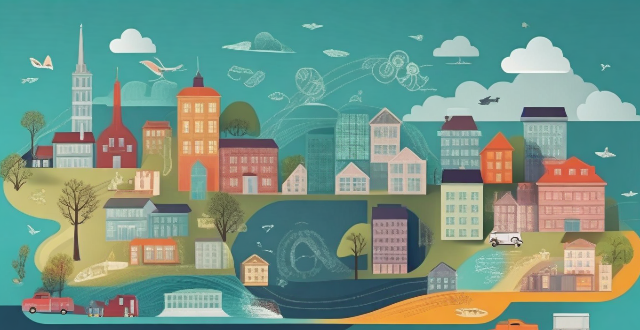The Paris Climate Agreement, adopted in 2015, emphasizes climate justice and the need for all countries to take action to limit global warming. It recognizes the unequal impacts of climate change on vulnerable communities and developing countries, and provides mechanisms for financial support, capacity building, and loss and damage compensation. The agreement aims to create a more equitable and just response to the global challenge of climate change.

The Paris Climate Agreement and Climate Justice
The Paris Climate Agreement, adopted in 2015, is a globally binding agreement aimed at addressing climate change. It emphasizes the need for all countries to take action to limit global warming to well below 2 degrees Celsius above pre-industrial levels, with an aspirational goal of limiting the temperature increase to 1.5 degrees Celsius. One of the key aspects of the agreement is its focus on climate justice, which recognizes that the impacts of climate change are not evenly distributed and that vulnerable communities and developing countries require special attention and support.
Recognition of Vulnerable Communities
The Paris Agreement acknowledges that the poorest and most vulnerable communities are often the hardest hit by climate change. It calls for the full respect of human rights, including access to information, participation in decision-making, access to justice, and the right to a healthy environment. This includes recognizing the rights of indigenous peoples and local communities to manage their natural resources and traditional knowledge.
Mitigation and Adaptation
The agreement recognizes the need for both mitigation (reducing greenhouse gas emissions) and adaptation (building resilience to the impacts of climate change). It emphasizes the importance of providing financial and technical support to developing countries to help them build low-emission and climate-resilient economies. This includes supporting their efforts to develop sustainable transport, promote energy efficiency, and invest in renewable energy sources.
Loss and Damage
The Paris Agreement also acknowledges that some impacts of climate change can no longer be avoided or adapted to, leading to what is known as "loss and damage." The agreement creates a mechanism to address these issues, including through insurance schemes, relocation programs, and other measures to compensate those who have suffered losses due to climate change.
Financial Support
The agreement recognizes the need for developed countries to provide financial resources to support the efforts of developing countries in combating climate change. This includes establishing a new framework for providing finance from developed countries to developing countries, with a focus on transparency and accountability.
Capacity Building
The Paris Agreement calls for enhanced capacity building in developing countries to support their efforts to implement climate actions. This includes training and education programs, as well as institutional strengthening, to ensure that these countries have the necessary skills and resources to address climate change effectively.
In conclusion, the Paris Climate Agreement addresses climate justice by recognizing the unequal impacts of climate change on vulnerable communities and developing countries, and by providing mechanisms for financial support, capacity building, and loss and damage compensation. By doing so, it aims to create a more equitable and just response to the global challenge of climate change.